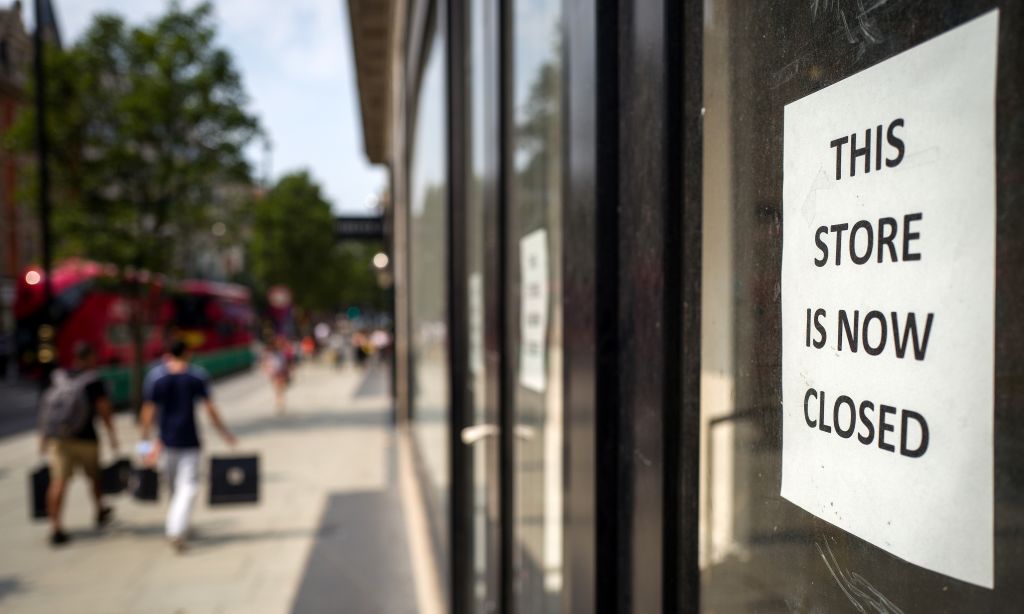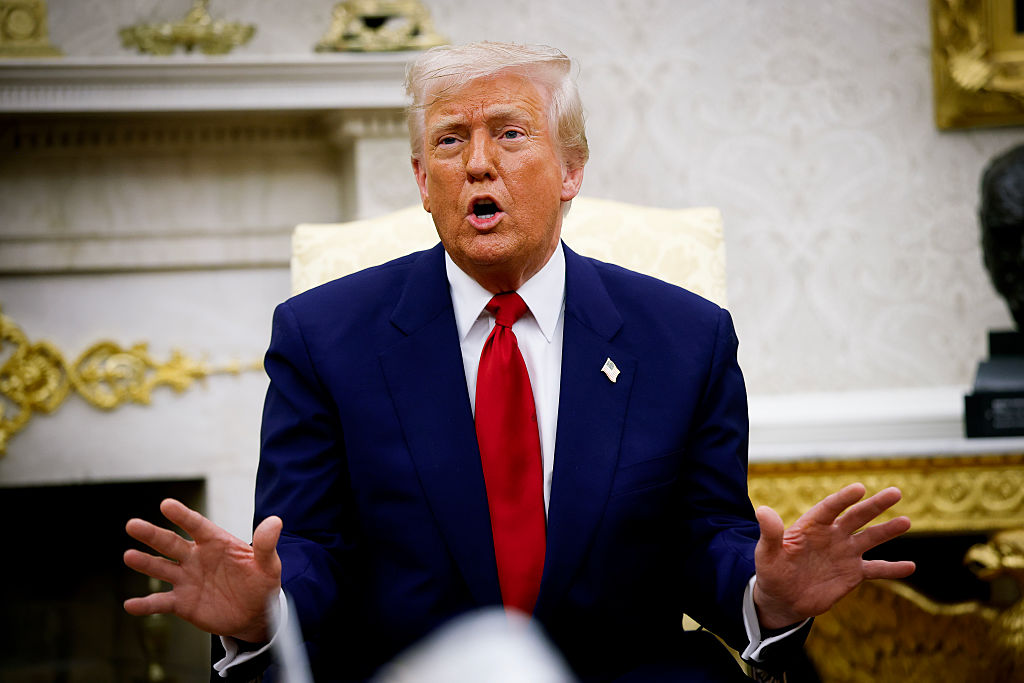As a recession looms, policymakers have predictably turned to entrepreneurs to start new businesses and jumpstart the economy. While this may be a good political talking point, the fact is that new business formation has never shortened a recession or reduced its impact.
Some economists have looked to Covid to explain the unprecedented number of new businesses that sought IRS tax IDs during the pandemic. Washington’s touted “surge in entrepreneurship” is proving evanescent, however. Many individuals, facing economic lockdowns and the prospect of extended unemployment, decided to create businesses, often from home. Few of these companies will ever employ anyone except their founders — and rates of new business formation are already falling back to pre-pandemic levels.
Worse, the twenty-year trend of declining new firm foundation, year over year, continues to accelerate. Why? Because the administration’s economic policy has made starting a new business, always a challenge, even more difficult now.
The president’s early decision to curtail American production of oil-based energy has inflicted cost increases on nearly every sector of the economy, especially manufacturing, farming, trucking, and the startup-friendly home building industry. The ensuing price inflation has been both rapid and widespread. During the summer and fall of 2021, gasoline prices increased nearly 25 percent. To date in 2022, gas is up another 30 percent. So the total impact, which Americans confront daily, is gas at more than double the price of a year ago.
;768:[300×250,336×280,320×100];0:[300×250,320×100,320×50]”]The unprecedented government transfer payments — both stimulus dollars and unemployment — that buoyed the economy are running out. But the public debt incurred to fund these stopgap programs will burden the economy, slowing growth for decades to come.
The White House is working feverishly to control the political fallout in the midterm elections. Reductions in social spending are unlikely — the administration still talks of Build Back Better — and the Federal Reserve continues to be too timid in raising rates to dampen rising prices. The specter of long-term inflation has triggered a stock market sell-off that has destroyed trillions in household savings. Consumer sentiment has just hit a new low, and housing starts have fallen 14 percent this year as construction dries up.
Young businesses are in a worse spot than even during the Great Recession of 2007 and 2008. Global supply chains have delayed and raised prices on everything from computer chips to washing machines. As our ratio of public debt to GDP worsens, the cost of overseas production will grow as the dollar weakens.
Access to startup capital is also in decline. Bank loans to startups are practically non-existent — and venture capital investments in new companies were down 19 percent in the first quarter of 2022.
None of this is news to entrepreneurs and small business owners. In March, 88 percent of small business respondents to a Goldman Sachs survey said that inflation has worsened its bottom-line impact since January. Similarly, the National Federation of Independent Businesses reported that its Business Optimism Index among smaller firms had declined in May for the fifth consecutive month, reaching the lowest level in the Index’s forty-eight-year history.
;768:[300×250,336×280,320×100];0:[300×250,320×100,320×50]”]This downturn also means fewer high-potential startups — businesses built around revolutionary innovations that can scale and employ thousands of workers. Such startups, some destined to become billion-dollar businesses, could define the American economy for years to come but now will never exist.
Washington’s solution? To continue pumping more money into every public agency that claims to support entrepreneurs and the nation’s innovation infrastructure. If this approach had been working, we would not have seen twenty years of declining numbers of new firms nor continuous erosion in American productivity.
Perhaps it’s time for a different approach. As loathe as most entrepreneurs may be to embrace yet another government initiative, a unified, principled and transparent approach may be the only means to comprehensively evaluate the many-tentacled and mostly ineffective “entrepreneurship” programs across the federal landscape in support of ideas that some bureaucrats once deemed promising.
Perhaps a new federal omnibus entity, the “Office of the New Business Inspector General,” could continuously examine the effectiveness of public efforts intended to stimulate more entrepreneurship?
If effectively constituted and empowered, an ONBIG could examine the actual results of the SBA’s many years of efforts to fund start-ups, look at the success of HUD’s community development grants to encourage business creation in failing cities, empirically gauge the cost-benefit of Small Business Investment Research grants, assess the success or failure of the many business incubators and venture funds across various agencies, and audit the efforts of the National Science Foundation to encourage middle-aged scientists to become entrepreneurs. Taxpayers deserve to know: do these programs actually work?
An independent ONBIG could also subject proposed legislation intended to encourage startups to a cost/benefit analysis — and examine the performance of companies that receive support from government managed venture funds.
;768:[300×250,336×280,320×100];0:[300×250,320×100,320×50]”]An effective ONBIG might spell the end for hundreds of government programs that slow rather than fuel innovation and entrepreneurship. Among other objectives, it could work to eliminate regulations that commonly favor the interests of incumbent companies over startups. Kauffman Foundation research has repeatedly found that regulations, particularly at the state and local level, are the single biggest deterrent to new firm formation.
But regulation is far from the only way that government slows innovation. In 2011, President Obama signed the ironically named America Invents Act that permitted large corporations to challenge previously granted patents. This opened the door for big companies to deploy litigation to crush startups that posed threats to their market dominance. The ONBIG could advise Congress to return to the first-to-file incontestability regime that served America well for nearly 200 years.
Also, federal tax policy provides a benefit to established companies by permitting the expensing of capital investments as an offset against current income, a luxury that startups seldom enjoy. An ONBIG could make the case for legislation and IRS policy that would permit startups to expense capital costs in their first five years.
As politicians hope that entrepreneurs will get busy and save our economy, most fail to recognize that the federal entrepreneurial ecosystem is geared to an unarticulated industrial policy that favors large companies. Indeed, many startups backed by government are seen by bureaucrats and large companies as likely acquisitions to strengthen existing firms. Effectively, government has undertaken the job of de-risking innovative ideas for big companies.
Politicians must understand that our economy grows faster when the “gales of creative destruction,” involving the risk-taking of entrepreneurs, are allowed to overwhelm the visions of central planners that will ultimately slow, not hasten, the recovery that our economy desperately needs.
Carl J. Schramm, an economist, is a professor at Syracuse University and former president of the Kauffman Foundation. His most recent book is Burn the Business Plan: What Entrepreneurs Really Do (Simon and Schuster). This essay is drawn from remarks at a recent Wake Forest Defense of Capitalism Summit.
;768:[300×250,336×280,320×100];0:[300×250,320×100,320×50]”]
























